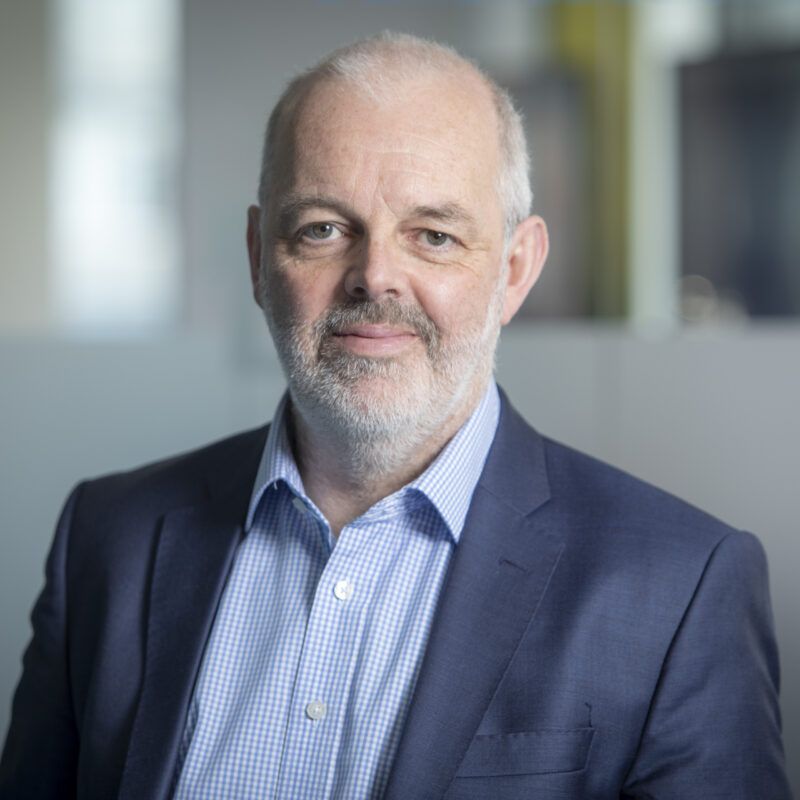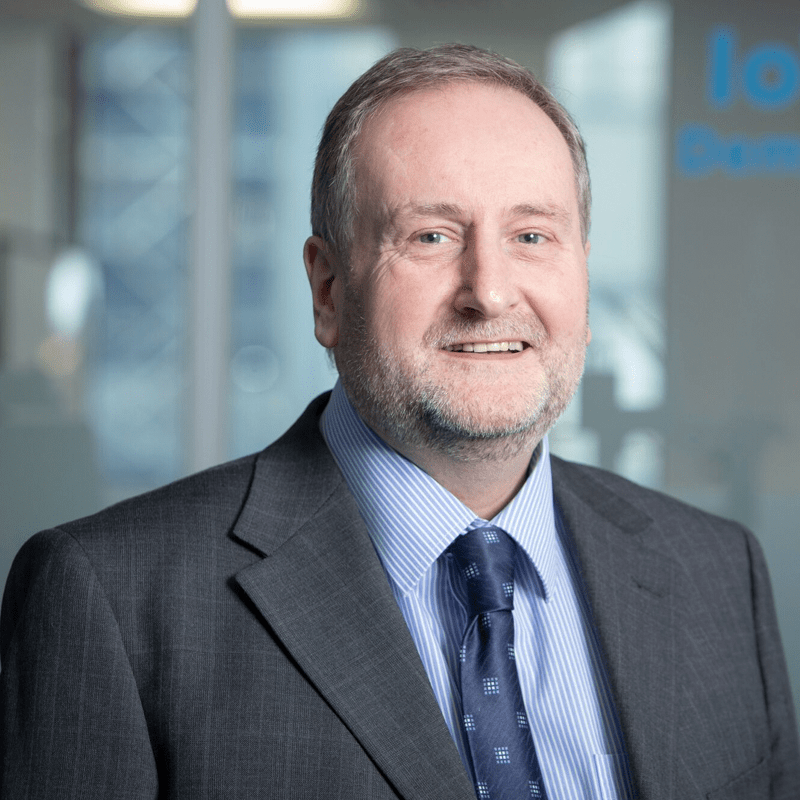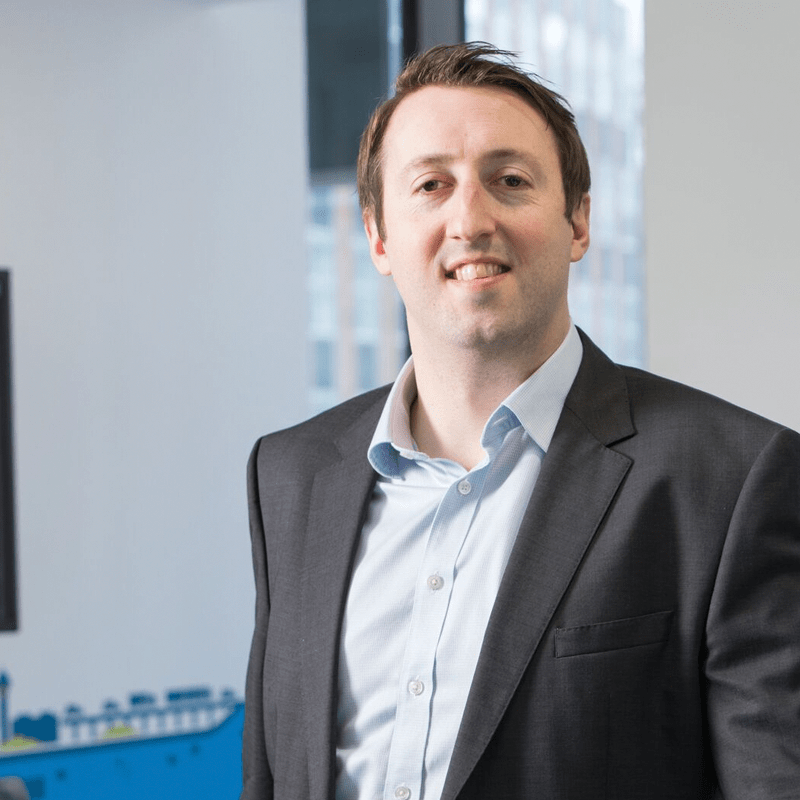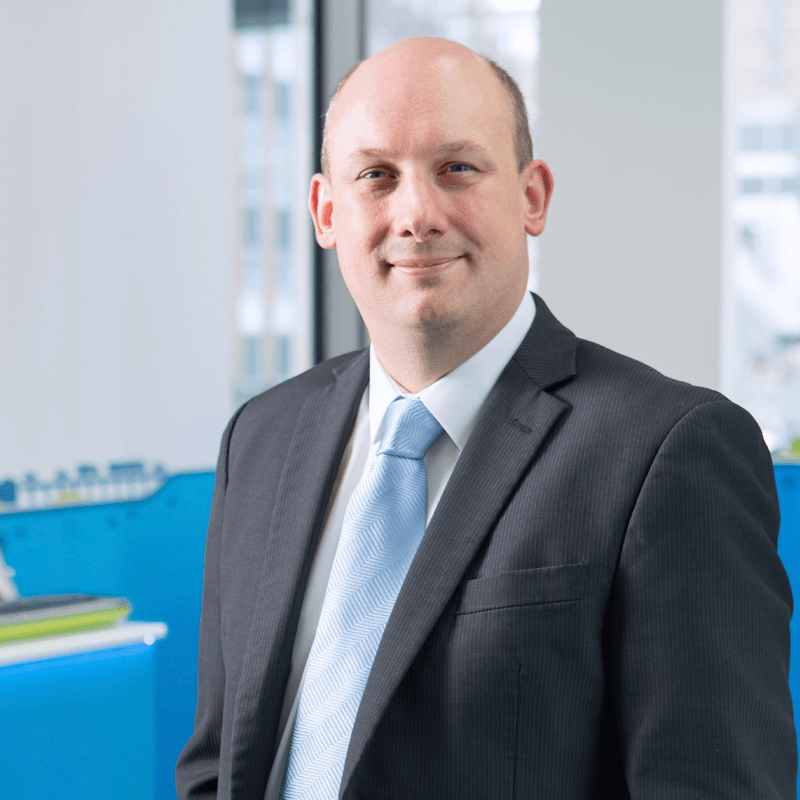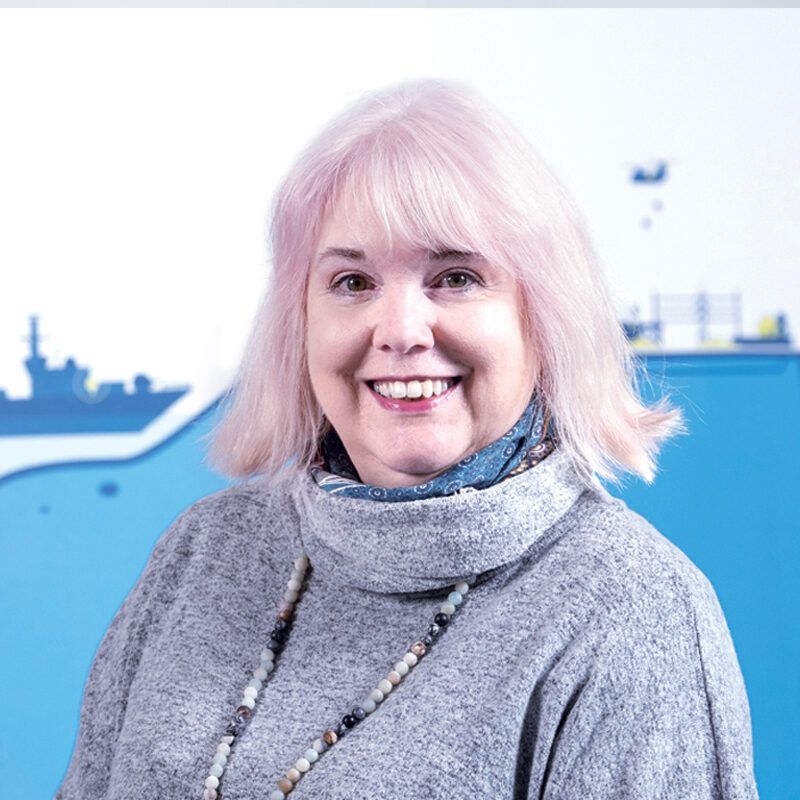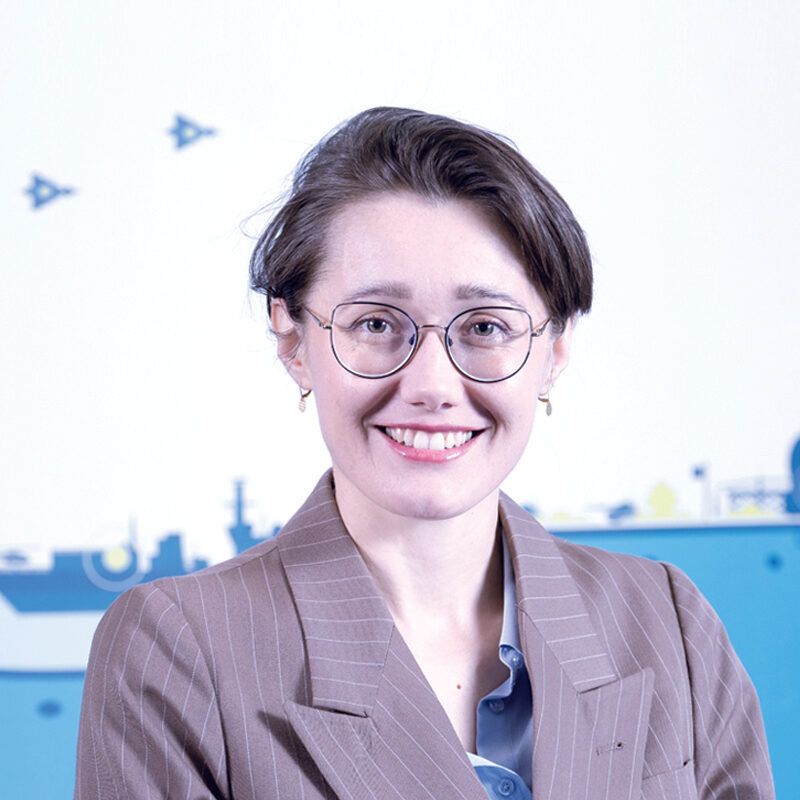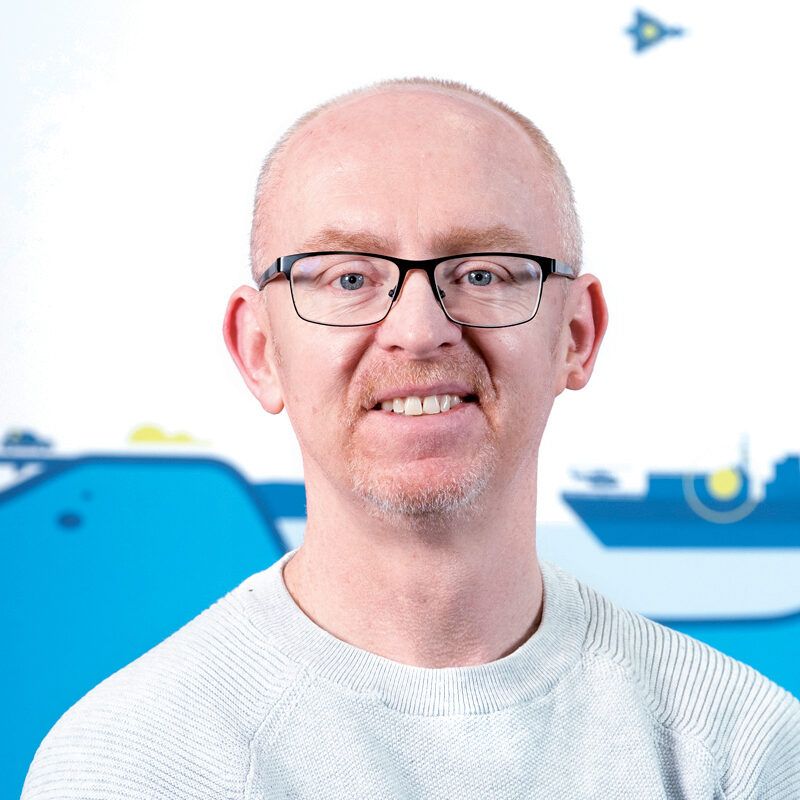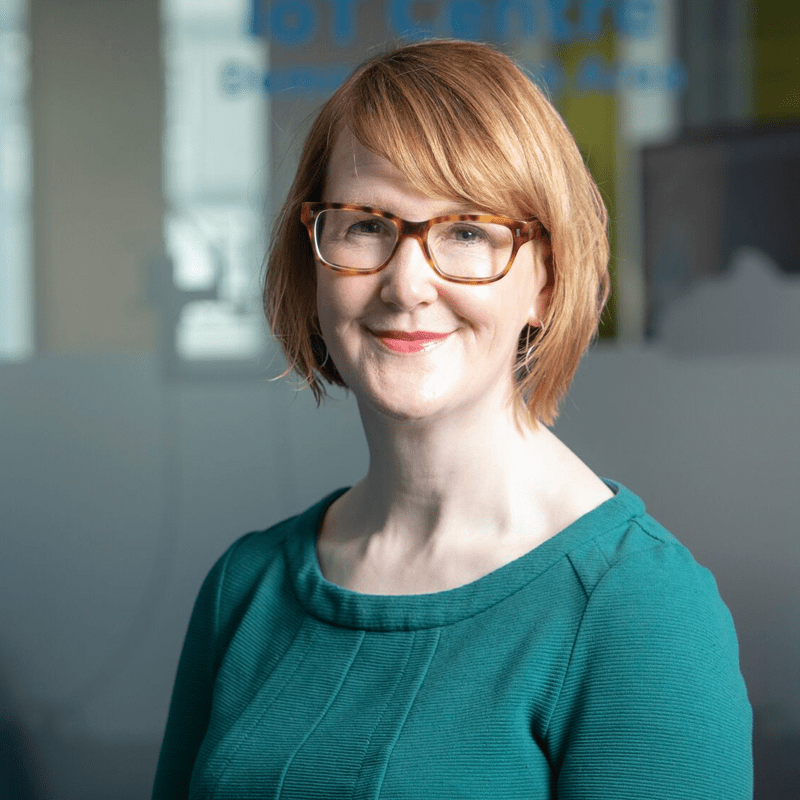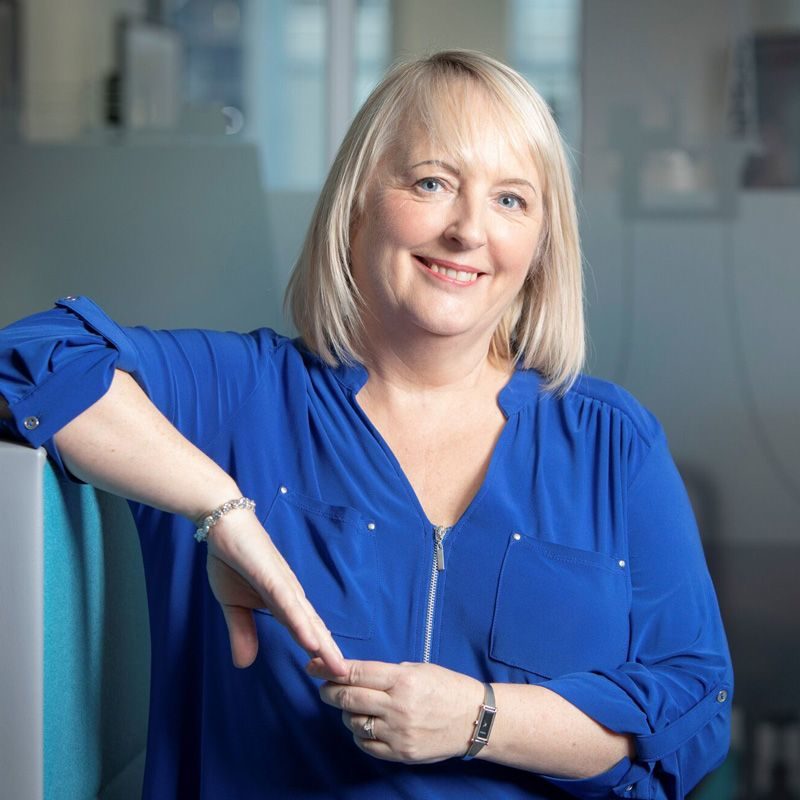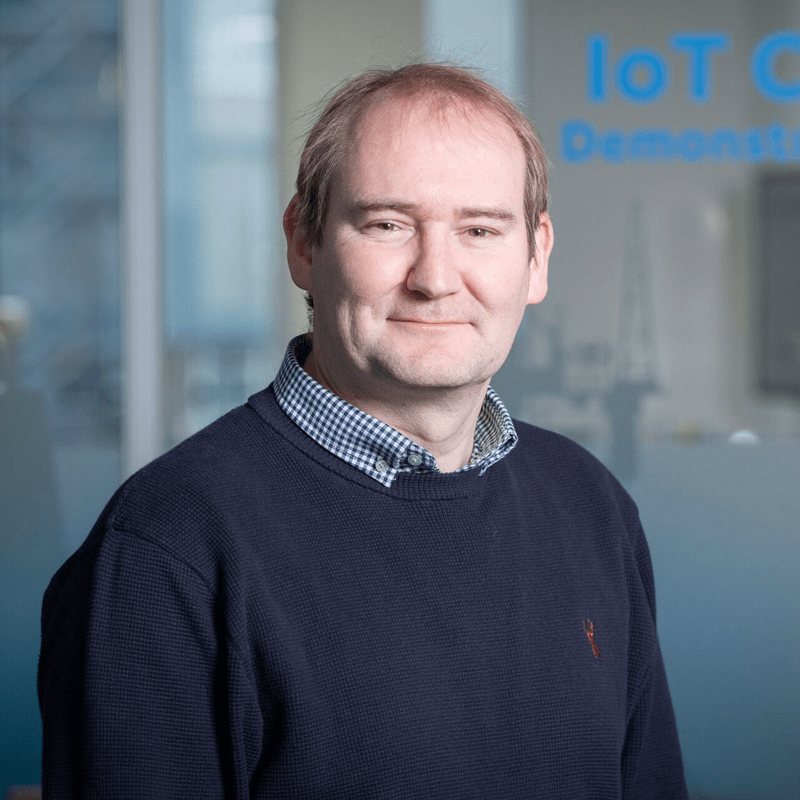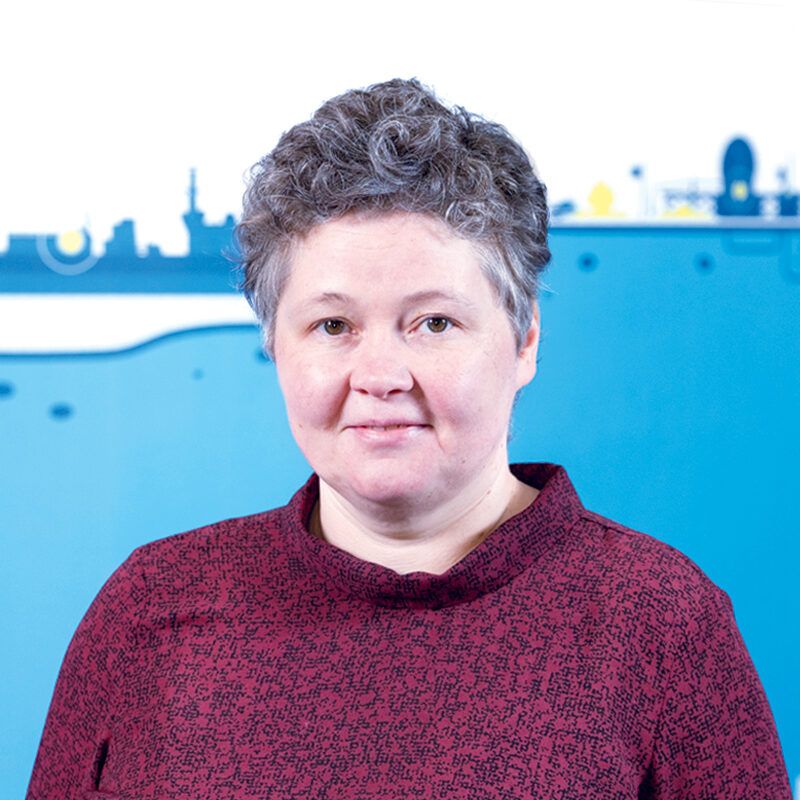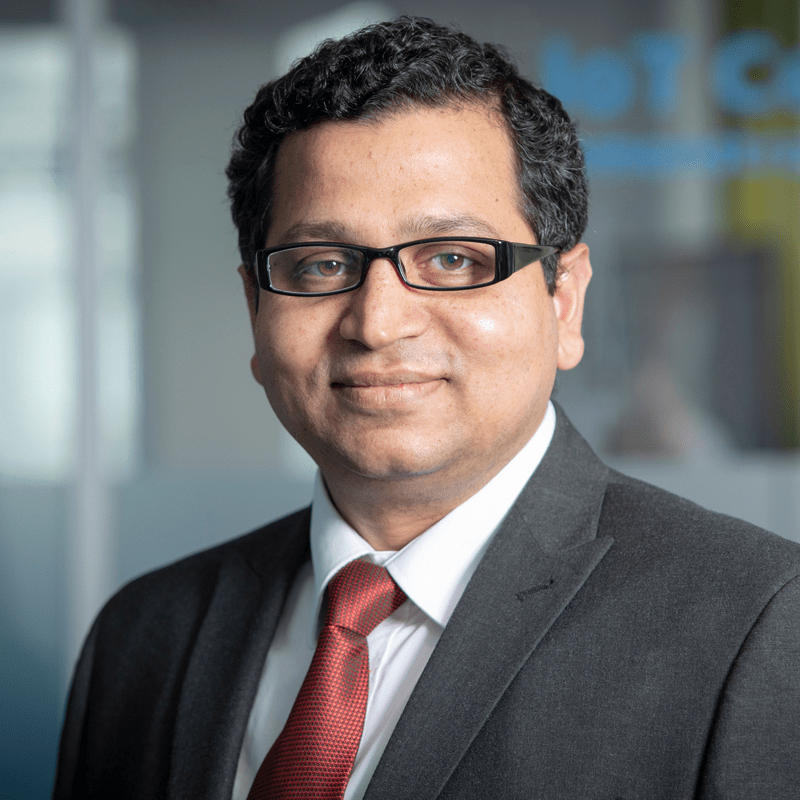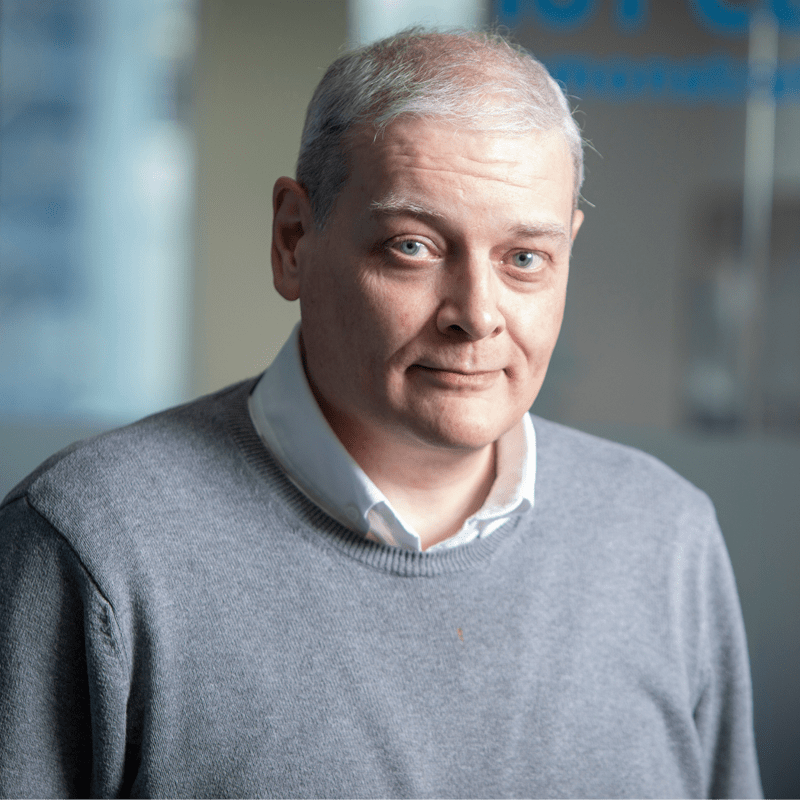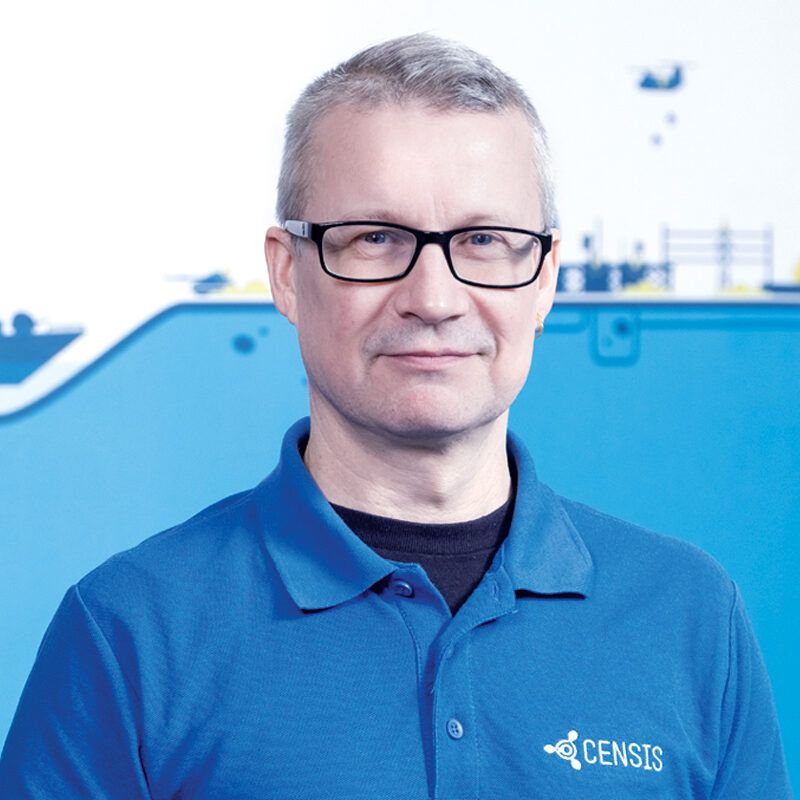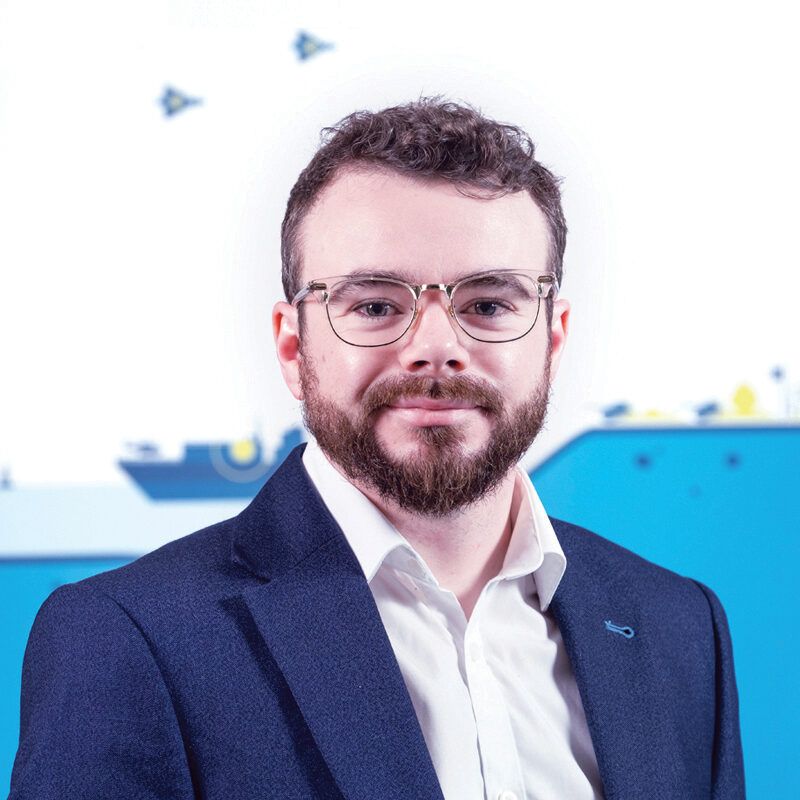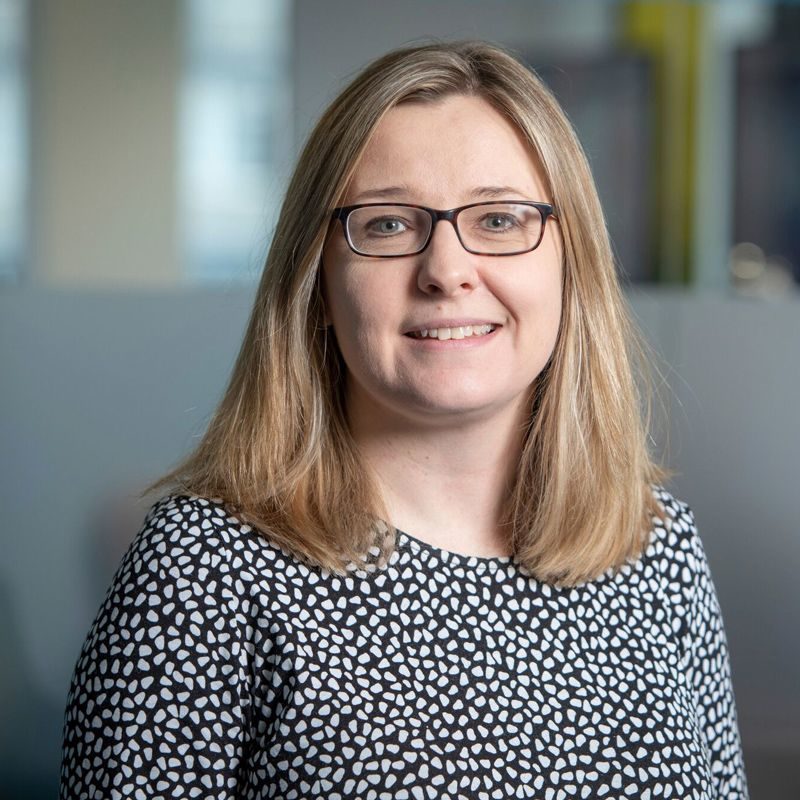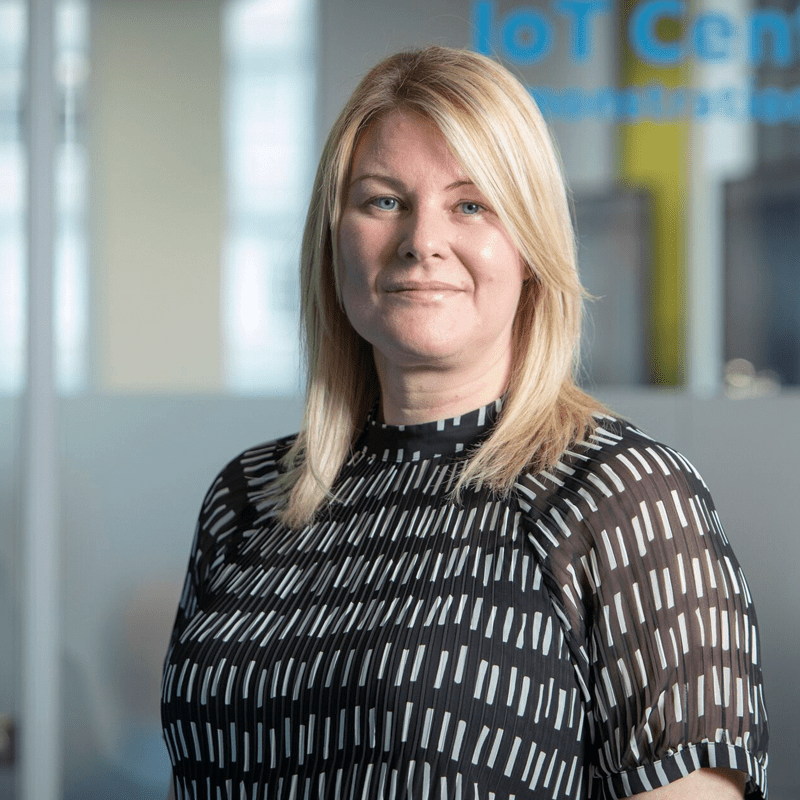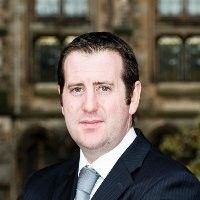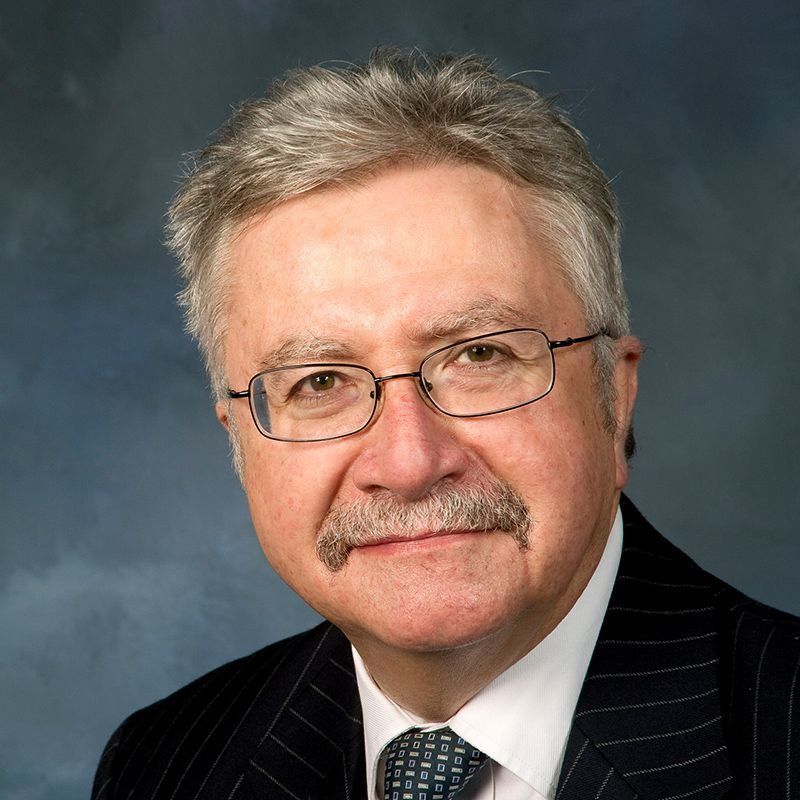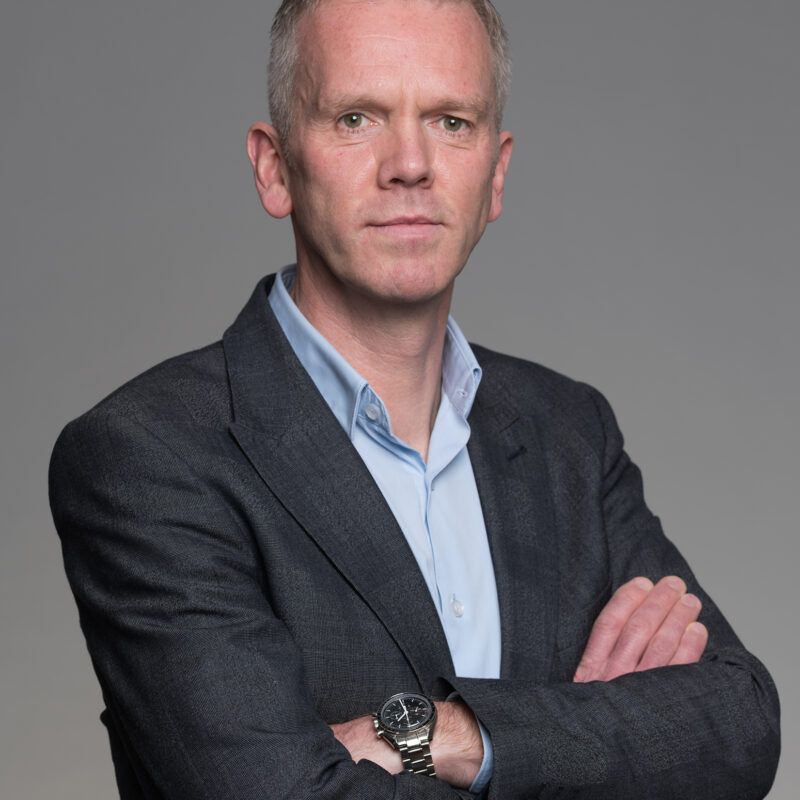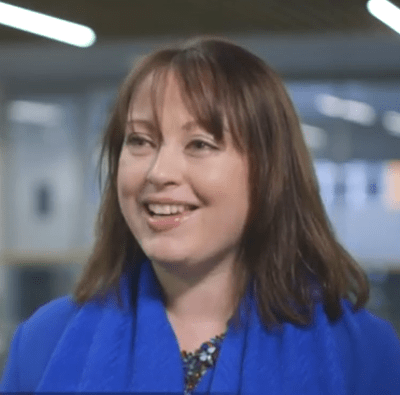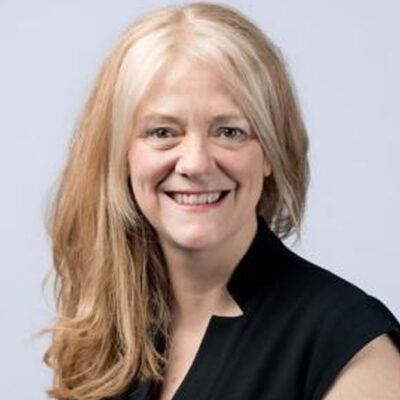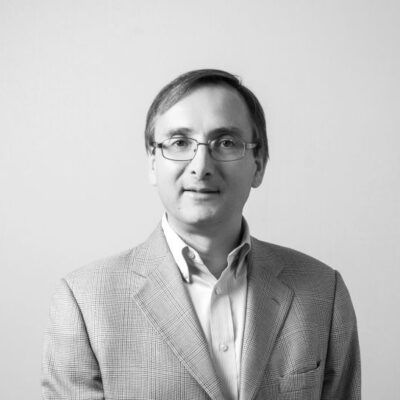Home > What we do > Our people
Meet the CENSIS team
We have expertise in engineering, project management, business engagement, finance, marketing and administration.
Contact details for staff are available in profiles.
Meet our Board
The Governing Board plays a strategic role in our aim of increasing technology innovation and adoption across Scotland and is accountable for financial and funding activities.
Paul is an entrepreneurial technologist with a substantial track record for applying innovation across multiple market sectors spanning academia, government, SMEs and international PLCs.
Paul’s early career was with UK MoD, then with QinetiQ where he held a number of leadership roles CEO of QinetiQ Inc. Subsequently, Paul has founded and ran an SME and then was the inaugural Executive Director Innovation and Investment at the UK Defence Solutions Centre. He joined CENSIS in 2019 where he has been pivotal in the development and implementation of digital solutions across the public and private sectors in Scotland.
Paul’s business skills include leadership, substantial international P&L experience, capital raising and realising value from technology.
Paul is a member of the Board at South of Scotland Enterprise, Scotland’s Scotland’s enterprise agency for Dumfries and Galloway and the Scottish Borders. Earlier in 2022 the Engineering and Physical Sciences Research Council (EPSRC) appointed him to its Science Engineering and Technology Board (SETB). The SETB is responsible for identifying and championing new research challenges at the cutting edge of engineering and physical sciences for future investment.
Paul is a co-founder of the Smart Things Accelerator Centre, a dedicated Scottish IoT accelerator for SMEs, scale up and start up companies.
Prof Graham Kerr has over twenty years’ experience in new product development and engineering management.
As a postdoctoral researcher at the University of Glasgow, Graham worked on laser interferometry for gravitational wave detection developing laser stabilisation techniques.
His first foray into industry was with Babcock Energy Systems as a Senior Electronics and Instrumentation Engineer developing controls solutions for the energy sector. He was a founding member of Motorola Manufacturing Systems in Livingston and spent ten years developing factory automation solutions for manufacturing sectors such as cellular communications, semiconductor manufacture and automotive electronics. As R&D Manager for Texol Technical Solutions he led the development of a number of NPI programmes including a range of gas generators for analytical laboratories.
Immediately prior to joining CENSIS, Graham spent five years managing an R&D team at FMC Technologies developing advanced sensor solutions for the oil and gas industry and collaborating with universities in technology development.
He holds a BSc and PhD in Physics from the University of Glasgow. In April 2024, Graham was appointed as Professor in Practice at the University of Glasgow’s James Watt School of Engineering.
Dr Stephen Milne is experienced in designing, managing, and implementing international research projects for commercial product ideas with a hardware and software focus in the medical technology sector.
Stephen obtained the European MEng in Electronic and Electrical Engineering at the University of Glasgow, and subsequently worked for Agilent Technologies and Freescale Semiconductor. Following this, he completed an Engineering Doctorate within the ESPRC funded Medical Devices Doctoral Training Centre at the University of Strathclyde. Subsequently, his doctoral research was awarded further international funding to test the sensor device he developed clinically and develop further clinical sensing markers. During his time as a Research Associate at the University of Strathclyde he collaborated with a range of businesses, from multinationals to university spin out companies, on a broad range of technological innovations.
Prior to joining CENSIS, Stephen attended Babson College, Boston, one of the top rated US business schools as part of Entrepreneurial Scotland’s Saltire Fellowship program. As part of the Fellowship he spent six months with the Digital Health and Care Innovation Centre on a number of commercial orientated projects.
Dr Cade Wells is a Chartered Engineer with over 20 years’ experience in the research and development of embedded systems. He holds an Engineering Doctorate in System Level Integration jointly awarded by the universities of Edinburgh, Glasgow, Heriot-Watt and Strathclyde. He also holds an MEng in Computer System Engineering from Bangor University, Wales.
Before joining CENSIS, Cade founded and ran an engineering consultancy providing technical and business services to organisations developing electronic products and undertook forensic engineering investigations of electrical and electronic systems. He was also the Engineering Development Manager of a Scottish start-up, successfully developing and bringing to market its first innovative imaging product.
Prior to starting his own company, Cade held the position of Lead Electronics Design Engineer at the Institute for System Level Integration. In this role Cade managed the delivery of Scottish and European-funded projects providing technical support to entrepreneurs and SMEs developing new electronic products and services. He was also actively involved in wireless communication systems R&D projects and technology transfer projects introducing new imaging capabilities into companies.
Dr Rachael Wakefield’s technical background is in materials biodeterioration and laser and LED based environmental sensing. Her broad area of interest is sensing technologies for remote and challenging environments, and for agritech and marine applications. A specialist in IP and technology transfer Rachael has over 10 years’ experience in the set up and management of collaborative R&D projects, contracts, technology licensing and university spin out company development. She understands the technical and commercial challenges from both sides of the fence as an academic researcher and as a co-founder in a technology start up.
Rachael has a broad interest in sensor technologies in general, and is particularly interested in innovations that can deliver solutions to needs in agriculture, water, the wider natural environment and tourism.
Prior to joining CENSIS Rachael left a postdoctoral research post at RGU to explore the riskier side of technology commercialisation and co-founded a technology start up with an offshore and subsea sensing focus. She left after a few years to return to academia as a member of the research commercialisation team at the University of Aberdeen, managing five of the 10 academic teams that successfully spun out of Aberdeen during her time there. Rachael’s expertise is underpinned by applied academic research in environmental science, laser spectroscopy and optics-based sensing of materials. She holds a PhD in soil pollution microbiology from the University of Aberdeen.
Dr. Natalia Lukaszewicz’s expertise is in technology commercialisation and intellectual property strategy.
For many years, Natalia worked as a technology commercialisation officer in the Fraunhofer-Gesellschaft in Munich (Germany).
She was responsible for developing and executing commercialisation strategies for Fraunhofer teams under her supervision. This included tailoring technology licensing offers, approaching companies, preparing NDAs and negotiating licensing terms. In her work she applied design thinking, lean startup methods, IP-portfolio development strategies. During this time, Natalia was the programme leader of ‘Fraunhofer fosters licensing’ (corporation-wide technology licensing programme). She also coached Fraunhofer spin-out teams on the on intellectual property and IP-Strategy. Prior to that she worked as a doctoral candidate in the Patent Department of Fraunhofer HQ.
Before joining CENSIS, Natalia worked as a research associate at the Adam Smith Business School (University of Glasgow) where was involved in projects with diverse industry partners.
Natalia holds a PhD (Dr. Jur.) from the Faculty of Law of the LMU Munich. In her PhD thesis she investigated whether patent law and policy can ensure unconstrained innovativeness of the maker movement. She graduated the LLM Programme at the LMU Munich and obtained a Master in European Studies (European Law and Economics) at the University of Poznan (Poland).
Based in Forres, Alistair (Ally) Longmuir focuses on opportunities and engagement in the North East of Scotland and the Highlands and Islands, with a particular focus on supporting companies developing health and wellbeing technologies.
Before joining CENSIS, Ally ran his own consultancy. Prior to that, he was previously R&D Director at LifeScan – subsequently Johnson & Johnson – and held engineering roles with Motorola and the Royal Air Force.
With a track record of delivering innovation and developing breakthrough technology solutions, Ally has been involved in the development of several medical devices and wireless connected health solutions – over 10 million patients and health care providers use products he has delivered on daily basis.
His recent consultancy work included supporting businesses with their strategic planning and development in Med Tech. He has also worked with a variety of product development companies from startups through to new product introduction and high volume manufacture.
Ally holds a BSc Hons (1st) degree in Electronics and Software Engineering from the Open University.
Siân joined CENSIS from an earlier business development role in the Scottish Sensor Systems Centre (S3C), an industry-university partnership delivering collaborative research into intelligent sensors and sensor systems. At CENSIS Siân is responsible for outreach and events planning, strategic marketing, and skills development, including CENSIS support of PhD and EngD projects in partnership with industry and universities.
Prior to joining S3C, she was the Manager of the Engineering Doctorate Centre for System Level Integration, a postgraduate research degree programme delivered jointly by the universities of Edinburgh, Glasgow, Heriot-Watt and Strathclyde.
Lynda supports the CENSIS marketing, event planning and social media activities on a part-time consultancy basis. She studied Business Studies and Marketing and her career over the last 25 years has been in in the advertising, marketing and graphic design sectors.
Prior to working with CENSIS, she managed marketing for the Encompass project at the University of Glasgow and ran an events programme to encourage Scottish SMEs to be more innovative. Lynda also has specialist experience in marketing for construction, new build and education.
John has over 20 years’ experience in the entire product life cycle including R&D and New Product Development primarily within the Oil and Gas industry.
Starting out as an Electronic Design Engineer, John moved into System Design and Architecture before transitioning into Project Management. He has overseen multiple projects with multidisciplinary global teams covering proof of concept, prototyping, qualification and manufacturing to field deployment and support.
Before joining CENSIS, John worked with FMC Technologies (TechnipFMC) as a Programme Manager; Sercel France as a Lead Project Engineer; and Vibtech as a Principal Hardware Design Engineer where he was instrumental in growing the company from a university engaged start-up to a $60m company bought by Sercel.
John holds a BEng and MPhil in Electronic & Electrical Engineering from the University of Strathclyde and a number of patents for his efforts across multiple projects and companies.
Helen is an engineer with research and development experience in the defence and microelectronics sectors. Prior to CENSIS she worked as an Applications Engineer at ST Microelectronics, providing system validation, technical and application support for marketing and customers. She also spent 10 years working for SELEX Galileo developing antenna test and calibration automation process, analysis, calibration and algorithm development of electronically scanned radars.
Helen holds a BSc (Hons) in Physics and Astronomy from the University of Glasgow and MPhil Applied Physics from the University of Strathclyde.
Dr Shrawan Jha is responsible for development projects related to sensor elements and transductance (pre-processing). An experienced semiconductor engineer and physicist, Shrawan has experience in developing sensors for application in engineering, IT, health, environmental monitoring and defence. He is also experienced in developing other electronic devices including LEDs, HFETs, and MEMS based on micro and nanotechnologies from concept to materials and devices development to applications.
Prior to joining CENSIS, Shrawan worked on a number of industrial as well as academic R&D projects. His research output in past 5 years has resulted in IP generation and contribution to ~50-research papers in top rated international journals and conferences, with a present h-factor of 10 and about 200 citations to his published work worldwide.
Shrawan has proposed, supervised and led a number of projects to success, including some that received innovation awards and interest from business. He has been a member of IEEE and Materials Research Society (MRS). Shrawan’s academic training includes Masters in Physics (Electronics and Nuclear Science), Masters in Technology (Solid-State Materials) and a PhD in Microelectronics (III-V device technology for application in telecommunication and bioelectronics). He has several awards and merits to his credit and is an alumnus of the Indian Institute of Technology, City University of Hong Kong, and Imperial College London.
Norman has over 20 years’ experience of embedded software development. He started as a software engineer at Motorola Manufacturing Systems, working on robotic systems for factory automation, before moving to Pentland Systems, where he designed embedded software for Analogue I/O modules. At Honeywell Security he worked on intruder detection systems, and at Bitwise he developed software for 3G femtocell access points.
Before joining CENSIS, Norman was at FMC, working on sensing and measurement R&D projects.
He has a BSc in Physics and Astronomy and a PhD in Physics, both from the University of Glasgow.
An electronics design engineer who has spent over 25 years in industry, Steven has a wealth of experience across a range of industry sectors including computer internetworking, data/telecommunications, lab instruments and medical devices, subsea and oil and gas, and land seismic survey equipment.
His key skills are in designing circuits for microprocessor and low-power microcontroller-based applications, low-power digital sensor circuits, WiFi, BLE and NFC based circuit design, battery-powered applications including charging and charge monitoring, PCB layout, design specification and test documentation, and regulatory approvals testing and certification.
Mark Waters joins CENSIS from Mitsubishi Air Conditioning Europe where – as part of a Knowledge Transfer Partnership between Glasgow Caledonian University and Mitsubishi – he applied Industrial Internet of Things (IIoT) technologies to the company’s manufacturing facility in Livingston to deliver process and performance improvements that included utility efficiency and machine uptime. Making use of AI, the project was able to deliver anomaly detection in production data to provide early warning of machine faults to prevent online failure of the manufacturing equipment. He also has software and electronics experience in roles with Thales, Horiba and Scottish Power.
Mark holds an MEng (with Distinction) in Electronic and Electrical Engineering from the University of Strathclyde. During his time at university, Mark won a number of academic and industry scholarships and awards.
Susan is a qualified CIMA accountant with over 15 years’ post-qualified experience.
Before joining CENSIS, Susan worked for three years as an accountancy tutor for Kaplan Financial. Prior to this she worked for seven years at Barclays Wealth where she held roles as Finance Business Partner and Financial Controller.
Susan trained as an accountant with British Telecom in London having being recruited onto their finance graduate training programme.
Johan is an experienced administrator with more than 15 years’ office management expertise, and joins CENSIS from a training and professional development company based on the outskirts of Glasgow.
After several years in the same post, coupled with the her youngest son starting school, Johan felt that it was time for a fresh challenge professionally. She had developed an office support structure that enables maximum support mechanisms for those working within and out with the CENSIS office.
Diane holds an LLB (Hons) and LLM and has extensive experience working within and for the University sector. She has over 14 years’ experience in drafting, reviewing and negotiating agreements between University and commercial partners, including agreements for the supply of research, service, consultancy, confidentiality, secondments, collaborations and has practical experience of state aid issues and UK / EU export controls. Diane has an excellent understanding of the challenges faced by public and private sectors and adopts a pragmatic approach. Diane is an active participant in a Scottish University’s contracts working group, a forum which has been set up to try and simplify contracts, to share best practice and find ways of reducing transactional costs across various activities / various sectors.
Prior to this, Diane worked for a micro SME which custom-designed and built compressor packages for CHP plants where she gained experience in costings, engineering sales, procurement and project management. Subsequently, after the company was acquired by a large engineering and manufacturing organisation, Diane assumed responsibility for the aftersales market including preparing quotations, managing and scheduling commissioning and maintenance activities, sourcing repairs and replacements, procurement through to packaging, customs clearance, delivery and final invoicing.
Dr Neil Bowering is currently the Executive Director for Student and Academic Services at the University of Glasgow. Prior to this he was deputy head of the College of Medical, Veterinary and Life Sciences with a focus on strategy development and programme director for the £90M Strength in Places funded Living Laboratory for Precision Medicine. Neil was also director for professional services in the College of Science and Engineering.
Professor Steve Beaumont is Vice Principal Emeritus at the University of Glasgow. He has a portfolio of responsibilities including chairing and holding a number of NEDs on the governing boards of technology companies.
He is the former Director of Quantic, the UK Quantum Technology Hub in Quantum Imaging, and the former Vice-Principal for Research & Enterprise at the University of Glasgow .
Steve’s research background is in nanotechnology and nanoelectronics for which he was awarded the OBE in 2002. Steve is a Fellow of the Royal Society of Edinburgh and a Fellow of the Royal Academy of Engineering.
Gåurāb Chatterjea develops and executes growth and innovation opportunities for Shell, the world’s 11th largest company. He has played key roles in three significant, long-term, global growth initiatives – new energies, liquefied natural gas (LNG) and hydrogen.
Gåurāb holds a BA from University College London, an MSc from the London School of Economics and a qualification in innovation and entrepreneurship from Stanford University.
Scott was co-founder and Managing Director of Boston Networks and Executive Board Director of North (formerly Boston Group). North designs and delivers integrated technology solutions for complex and critical environments throughout the UK and internationally, with expertise in IoT, networking and connectivity, and safety and security.
Scott led the strategic expansion of the company into a national business through a series of targeted acquisitions. He rebranded the business and developed its offering. In 2023, Scott stepped down from the day-to-day running of the business to become a non-exec director at North and to pursue a wider non-executive career.
He has over 30 years’ experience in the technology, network infrastructure and ‘smart’ building services sectors. Scott specialises in business start up / scale up, business leadership, business management and operations, strategic p, strategic business development, brand, proposition and market development, business acquisition / M&A, strategic growth and private equity.
Sharon is Technical Director of IBM Technology Ecosystem.
Sharon is passionate about driving change for good in the tech industry and applying innovation in the context of the many challenges her clients face, including ever-changing priorities resulting from major events such as the climate crisis. Formerly IBM’s Technology’s Global Technical Lead for Government, her mission was to transform public services with technology and help Government do better for its citizens.
With over 20 years of experience across multiple business sectors and diverse technologies, Sharon was instrumental to the inaugural UK Government and IBM Memorandum of Understanding for Cloud in 2020. You’ll often find her on stage championing the positive impact technology can have on our lives, shaping its role in making government work, and advocating for ethical technical advancement.
Recently Sharon was appointed to the TechUK Justice and Emergency Services management committee, and is a Trustee, Director and board member of various external technology organizations including BCS, the Chartered Institute for IT.
A catalyst for change in inclusion, particularly regarding gender diversity, Sharon is a published co-author on the subject. She was awarded the MBE in the Queen’s Birthday Honours in 2018 for her services to women in technology-based industries.
Dr Jacqueline Redmond chairs the CENSIS Governing Board.
Jacqueline has over 25 years’ international experience in senior positions with energy majors, with particular expertise in risk management, business development and innovation.
She graduated from the University of Strathclyde with a PhD in Energy Economics, Jacqueline joined ScottishPower in the mid-1990s. She led the company’s risk management team as it began to grow, adapt to de-regulation, and re-define the role of a utility, latterly becoming director of corporate strategy.
In 2006, Jacqueline was appointed by Royal Dutch Shell to develop its global LNG (liquefied natural gas) strategy. She moved on to become the vice-president of technology strategy at the energy major, working with a $1.3 billion research and development (R&D) budget to find, fund, and mature innovative new energy technologies.
Following three years as Shell’s head of commercial power and senior deal lead, Jacqueline was appointed as chief risk officer at the then-UK Government owned Green Investment Bank. She continued to develop sustainable energy projects across the world with Macquarie, following its acquisition of the Green Investment Bank, where, until April 2019, she helped identify disruptive emerging technologies in the energy sector.
Jacqueline is currently Non-Executive Chair of CENSIS, and NED and Risk Management and Conflicts Committee Chair of the Scottish National Investment Bank (SNIB).
Craig is currently a UK board member of Edinburgh based Sofant Technologies (Phased Array Antennas), UK FinTech company InfinitX, Oxford based Alzheimer’s Diagnostic and Therapeutic company Neuro-Bio and Chairman of Highlands based Ava Innes (focused on Quality Sleep using natural & sustainable materials). He is a Board member of XPRIZE Foundation in Europe with a focus on creating global collaboration Hubs in the UK, Europe and across the Globe. Craig was previously Chair and Board Member of Glasgow based Krucial Technologies.
As Sr. Vice-President for JT Americas (Jersey Telecom), and Chief Commercial Officer (CCO) of JT IoT responsible for the growth and expansion of JT’s IoT business solutions and alliances globally, he co-led a highly successful £200M spinout and private equity sale. He is an active mentor of technology company founders across a diverse cross-section of technologies and geographies with two portfolio companies having listed on the NASDAQ exchange.
Craig has co-founded or been a principal in a number of UK and US startups in the areas of IoT, expert systems, imaging and, machine learning search, eLearning, advanced wireless and satellite communications as well as cloud/virtual computing, security, AR/VR and big data. Craig was previously a senior executive in the UK, Ireland and the USA for multinational corporations including Compaq, HP, Unisys and BP PLC.
Born in Scotland, Craig is an active ‘GlobalScot’ and currently lives in Phoenix AZ but works nationally and internationally. Craig holds a First Class Honors Degree from the University of Aberdeen and conducted graduate research in model simulation at Stanford University. Craig was previously President for five years of the Institute for Innovation (IIIP). An active venture philanthropist, he has collaborated and supported various non-profits and charities including the XPRIZE Foundation, Alzheimer’s Research in the UK, the President Eisenhower Foundation, Reforestation of Mount Kilimanjaro and constructing a regional hospital in the East African Rift Valley.
Based in Amsterdam, Sophie is an international executive with over a decade of experience in different commercial and new business development posts. She previously held roles in the oil and gas industry in Dubai with DNO ASA – the Norwegian operator – and in Iraq, Nigeria, Kazakhstan, and Japan with Royal Dutch Shell.
Sophie’s skills and experience were recently recognised by her peers when she was included in the NextWomen to Watch 2020, which highlights the 50 most promising female company founders. She will bring a broad set of experience and skills to the CENSIS board, including in business development and innovation.
Derek Shaw has 20 years’ experience working across the private and public sectors in a variety of commercial, financial, investment and economic development roles.
Having worked in Scottish Enterprise’s commercial investment arm for over decade, he subsequently led its commercial team delivering major strategic programmes before moving on to focus on innovation and place.
